The sodium-potassium pump moves K + into the cell while moving Na + out at the same time, at a ratio of three Na + for every two K + ions moved in. The Na +-K + ATPase exists in two forms, depending on its orientation to the cell’s interior or exterior and its affinity for either sodium or potassium ions. The process consists of the following
Frontiers | The Structure and Function of the Na,K-ATPase Isoforms in Health and Disease
ATP is hydrolyzed, leading to phosphorylation of a cytoplasmic loop of the pump and release of ADP. A conformational change in the pump exposes the Na + ions to the outside, where they are released. The pump binds 2 extracellular K + ions, leading somehow to dephosphorylation of the alpha subunit.

Source Image: healthcentral.com
Download Image
The sodium-potassium pump moves K + into the cell while moving Na + out at the same time, at a ratio of three Na + for every two K + ions moved in. The Na +-K + ATPase exists in two forms, depending on its orientation to the interior or exterior of the cell and its affinity for either sodium or potassium ions. The process consists of the
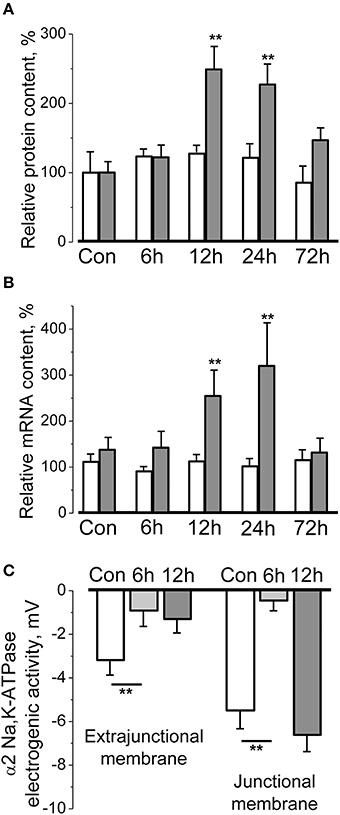
Source Image: frontiersin.org
Download Image
2.1: Schematics of the sodium-potassium pump (Na + /K +-ATPase). | Download Scientific Diagram The sodium-potassium pump is a P-type ATPase sharing similarities with other P-type ATPases, notably the calcium-ATPase in the sarcoplasmic reticulum and the hydrogen-potassium ATPase in gastric cells (2). … The function of the sodium-potassium pump is sensitive to the membrane potential across a cell membrane. The residues specifically

Source Image: slideshare.net
Download Image
The Sodium Potassium Atpase Functions By Performing
The sodium-potassium pump is a P-type ATPase sharing similarities with other P-type ATPases, notably the calcium-ATPase in the sarcoplasmic reticulum and the hydrogen-potassium ATPase in gastric cells (2). … The function of the sodium-potassium pump is sensitive to the membrane potential across a cell membrane. The residues specifically Jan 1, 2022Issue 1. January 2022 Natalya U. Fedosova, Michael Habeck, Poul Nissen https://doi.org/10.1002/cphy.c200018 Citations: 7 Read the full text PDF Tools Share Abstract Na,K-ATPase is an ubiquitous enzyme actively transporting Na-ions out of the cell in exchange for K-ions, thereby maintaining their concentration gradients across the cell membrane.
Sodium – Potassium Pump | PPT
Where is it Located The Na+/K+ pump is found in the cell membrane of all human and other animal cells. Structure The Sodium-Potassium Pump is a P-type ion pump composed of heterodimeric globular protein. It consists of two subunits: α and β. Frontiers | The Structure and Function of the Na,K-ATPase Isoforms in Health and Disease
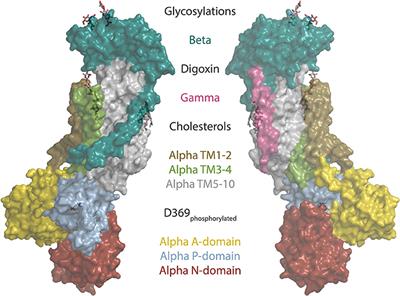
Source Image: frontiersin.org
Download Image
plaisir nature shower gel 2l verbena and grapefruit Where is it Located The Na+/K+ pump is found in the cell membrane of all human and other animal cells. Structure The Sodium-Potassium Pump is a P-type ion pump composed of heterodimeric globular protein. It consists of two subunits: α and β.

Source Image: byphasse.com
Download Image
Frontiers | The Structure and Function of the Na,K-ATPase Isoforms in Health and Disease The sodium-potassium pump moves K + into the cell while moving Na + out at the same time, at a ratio of three Na + for every two K + ions moved in. The Na +-K + ATPase exists in two forms, depending on its orientation to the cell’s interior or exterior and its affinity for either sodium or potassium ions. The process consists of the following
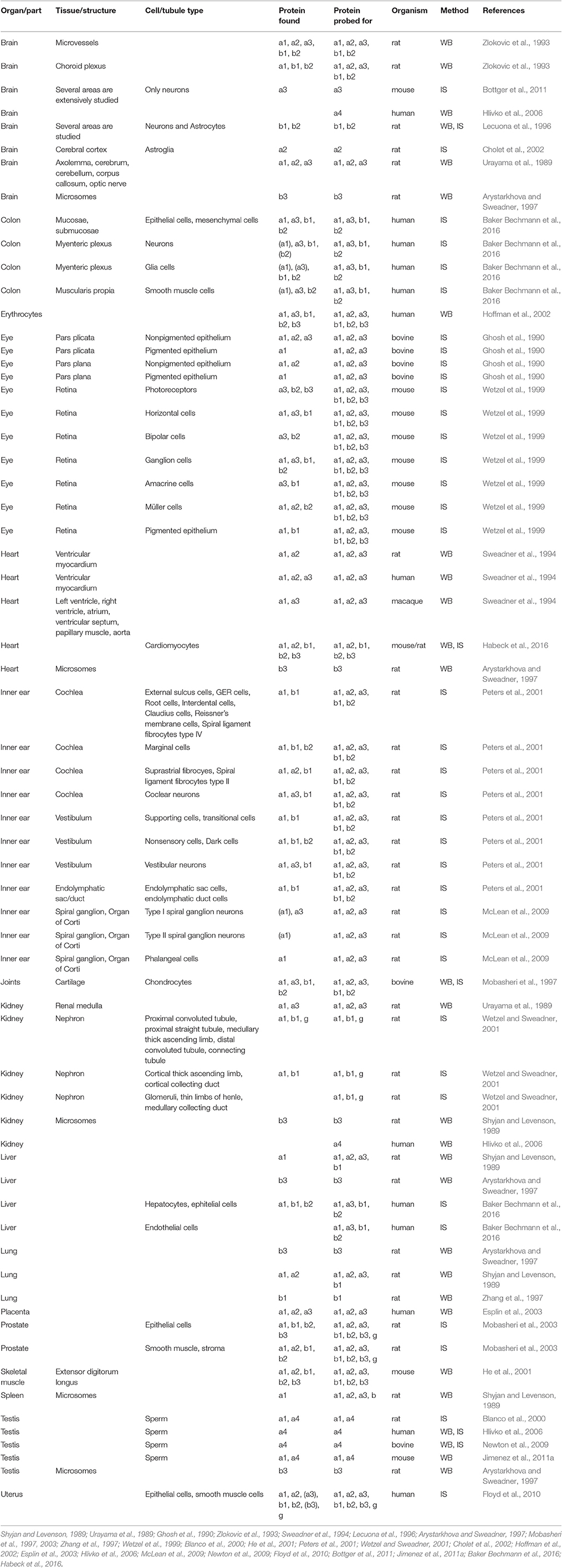
Source Image: frontiersin.org
Download Image
2.1: Schematics of the sodium-potassium pump (Na + /K +-ATPase). | Download Scientific Diagram The sodium-potassium pump moves K + into the cell while moving Na + out at the same time, at a ratio of three Na + for every two K + ions moved in. The Na +-K + ATPase exists in two forms, depending on its orientation to the interior or exterior of the cell and its affinity for either sodium or potassium ions. The process consists of the
Source Image: researchgate.net
Download Image
Frontiers | Specialized Functional Diversity and Interactions of the Na,K- ATPase Mar 13, 20231 2 3 30725773 NBK537088 The Na+ K+ pump is an electrogenic transmembrane ATPase first discovered in 1957 and situated in the outer plasma membrane of the cells; on the cytosolic side. The Na+ K+ ATPase pumps 3 Na+ out of the cell and 2K+ that into the cell, for every single ATP consumed.
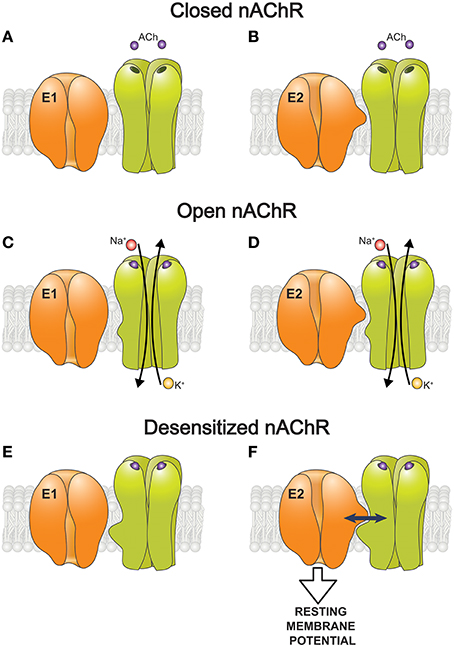
Source Image: frontiersin.org
Download Image
ARNI: Who Should Take This Medication, How, Benefits, & Risks The sodium-potassium pump is a P-type ATPase sharing similarities with other P-type ATPases, notably the calcium-ATPase in the sarcoplasmic reticulum and the hydrogen-potassium ATPase in gastric cells (2). … The function of the sodium-potassium pump is sensitive to the membrane potential across a cell membrane. The residues specifically

Source Image: healthcentral.com
Download Image
Frontiers | The Na+/K+-ATPase: A potential therapeutic target in cardiometabolic diseases Jan 1, 2022Issue 1. January 2022 Natalya U. Fedosova, Michael Habeck, Poul Nissen https://doi.org/10.1002/cphy.c200018 Citations: 7 Read the full text PDF Tools Share Abstract Na,K-ATPase is an ubiquitous enzyme actively transporting Na-ions out of the cell in exchange for K-ions, thereby maintaining their concentration gradients across the cell membrane.
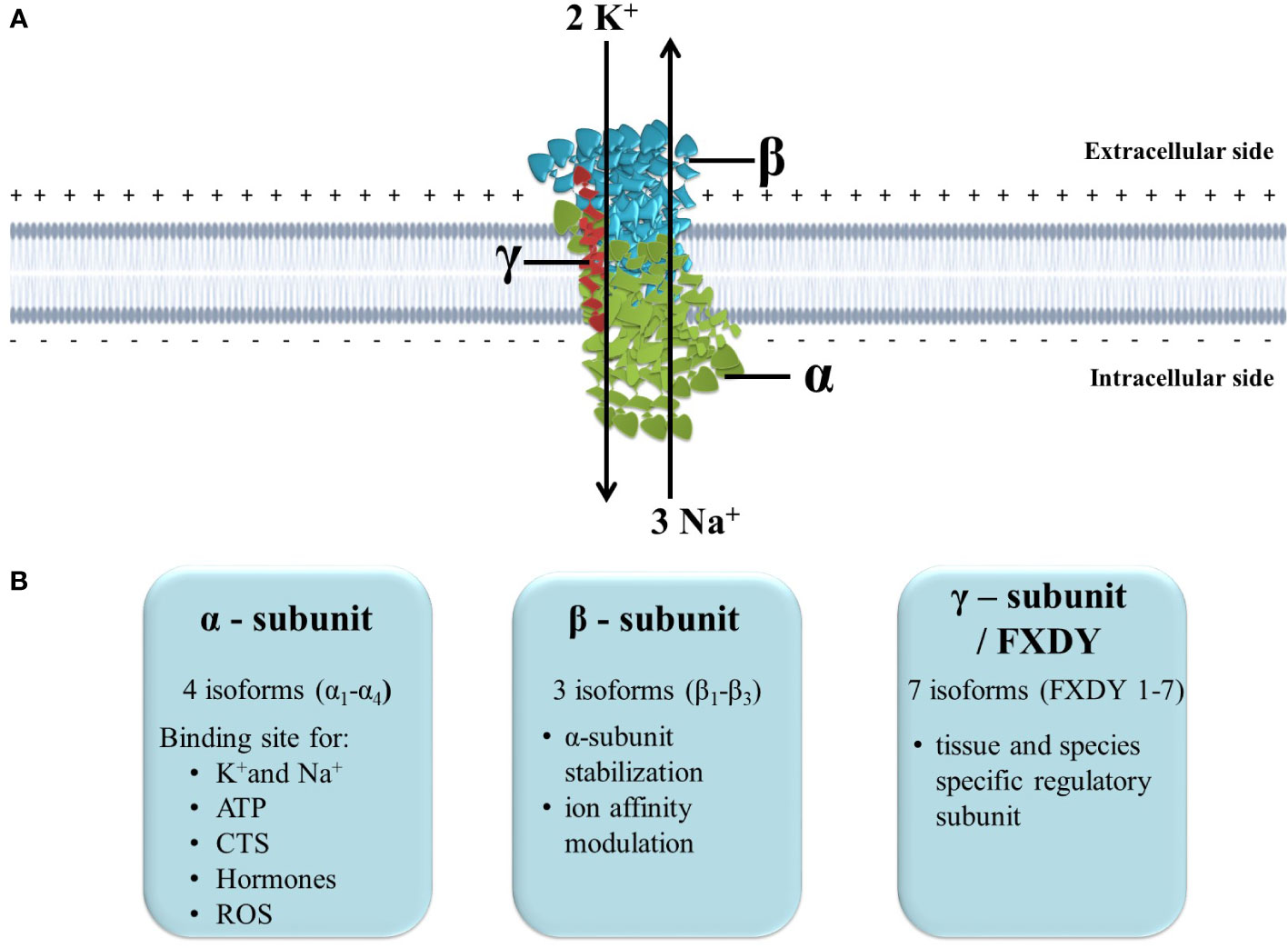
Source Image: frontiersin.org
Download Image
plaisir nature shower gel 2l verbena and grapefruit
Frontiers | The Na+/K+-ATPase: A potential therapeutic target in cardiometabolic diseases ATP is hydrolyzed, leading to phosphorylation of a cytoplasmic loop of the pump and release of ADP. A conformational change in the pump exposes the Na + ions to the outside, where they are released. The pump binds 2 extracellular K + ions, leading somehow to dephosphorylation of the alpha subunit.
2.1: Schematics of the sodium-potassium pump (Na + /K +-ATPase). | Download Scientific Diagram ARNI: Who Should Take This Medication, How, Benefits, & Risks Mar 13, 20231 2 3 30725773 NBK537088 The Na+ K+ pump is an electrogenic transmembrane ATPase first discovered in 1957 and situated in the outer plasma membrane of the cells; on the cytosolic side. The Na+ K+ ATPase pumps 3 Na+ out of the cell and 2K+ that into the cell, for every single ATP consumed.